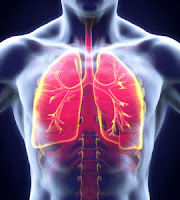What are the main symptoms of COPD?
Millions of people all over the world suffer from chronic obstructive pulmonary disease or COPD. This condition includes shortness of breath, emphysema, and bronchitis. COPD is common among smokers, and many people don't realize that they have the disease until later in life. Pulmonologists suggest that patients see a professional once they have difficulty breathing instead of dismissing it as fatigue or a sign of aging. Lisa M. Cannon, M.D., a board-certified pulmonary disease physician from New Jersey, discusses some of the disease's symptoms. Chronic cough and increased production of phlegm A cough that lasts for days, along with greenish phlegm, can be a sign of COPD. The body's reaction to the increased mucus production and other environmental irritants is through coughing. Too much coughing can cause fatigue and discomfort to the body. This is why those with suspected COPD need to consult their doctors to find ways to clear the airways without further damaging the lungs.
 |
Image source: Indiatimes.com |
There are many reasons why a person might experience dizziness. But for those experiencing frequent respiratory tract infections, coughing, and other discomforts, the constant feeling of dizziness might indicate that the body doesn't have enough supply of oxygen. Lisa M. Cannon, M.D. says that patients should not dismiss this symptom to prevent further complications, especially during these times.
Bluish skin or fingernails
Also known as cyanosis, this condition is another indicator of low oxygen levels in the blood. It is a common symptom of lung and heart conditions. This symptom might be accompanied by wheezing, difficulty breathing, sweating, chest tightness, and nausea for those with suspected COPD. When these symptoms show up along with cyanosis, getting emergency care is a must. The skin will return to its normal color once the body's normal oxygen level has been restored.
 |
Image source: Healthline.com |
Lisa M. Cannon, M.D., is a board-certified pulmonary disease and critical care physician with a private practice in Bergen County, New Jersey. For more reads on health and medicine, visit this page.



Comments
Post a Comment